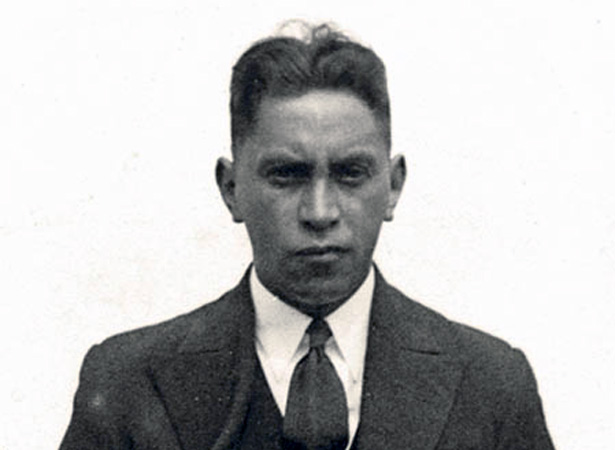
Korokī Te Rata Mahuta Tāwhiao Pōtatau Te Wherowhero was the fifth head of the Kīngitanga movement founded in 1858 in response to European colonisation.
Born at Waahi, Huntly, in 1909, Korokī was the eldest son of Te Rata, the fourth Māori king. When his father died in 1933 there was some support for appointing Te Puea Hērangi as the first Maori queen. But when Korokī raised the issue of his ability to do the job at his father’s funeral, the visiting chiefs agreed that he should succeed Te Rata.
Korokī's reign was a difficult one, not least because the poverty of many of his people made it difficult for them to support the Kīngitanga. Some Māori leaders, including the eminent Apirana Ngata, opposed any institution that challenged the sovereignty of Parliament. The government’s position was similar, and in 1939 it refused to exempt Korokī from a requirement to register under the social security regulations. Many supporters of the Kīngitanga viewed this as disrespectful, and the movement boycotted the celebrations of the centenary of the Treaty of Waitangi in 1940.
From the late 1950s Korokī's health deteriorated and he avoided public life. Earlier, Te Puea Hērangi had taken his eldest daughter, Piki Mahuta, around the country to represent the Kīngitanga at functions and ceremonies. When Korokī died at Ngāruawāhia in 1966, Piki was chosen as the first Māori queen. She was crowned as Te Arikinui Te Atairangikaahu a few hours before her father’s burial on 23 May 1966.
Read more on NZHistory
Origins of the Māori King Movement – Māori King movement originsKing Korokī1966 - key events – The 1960s
External links
How to cite this page
'Death of Māori King Korokī', URL: https://nzhistory.govt.nz/death-of-maori-king-koroki, (Ministry for Culture and Heritage), updated 28-Jan-2021
